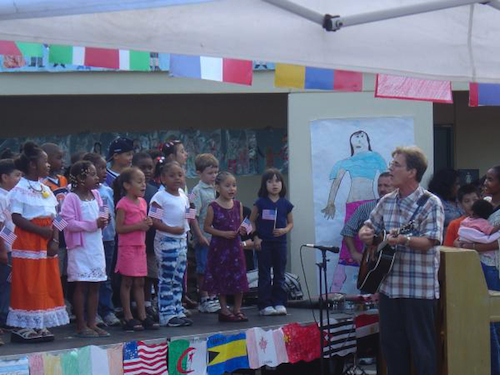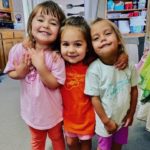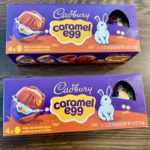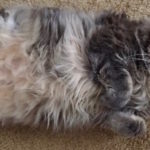Kindergarten Sing
For more than 15 years, Ken Cooper has worked with the kindergarten students and teachers at Sacramento area schools performing a guitar – accompanied live singing program geared to enhancing curriculum. He sings weekly with all of the kindergartners to reinforce reading and counting competence, social skills and to provide an opportunity for learning music appreciation. Mr. Cooper also composes original music to augment his program each year.
The Kindergarten Sing program has been developed over this time utilizing Open Court selections, other learning related songs such as “Apples and Bananas” and “10 Little Monkeys,” patriotic numbers like “This Land is Your Land,” children’s favorites such as “Take Me Out to the Ball Game,” seasonal tunes like “Jingle Bells,” and silly songs including ones from the popular television show “Barney & Friends.” Mr. Cooper’s program emphasizes Open Court reading principles, phonics, blending, and counting skills. It helps children learn to focus on a task and follow directions, while teaching appreciation of live music at the same time.
Mr. Cooper visits each kindergarten group (A.M. and/or P.M.) one day per week for a 1/2 hour session continuing throughout the entire school year.
Cost: $1000 for 2 classes combined, $1500 for 3 classes combined, once a week for the entire school year.
First & Second Grade Sing
Picking up where the Kindergarten Sing program leaves off, Ken Cooper continues reinforcing reading skills with 1st and 2nd grade students. His guitar accompanied singing program supports curriculum by utilizing Open Court unit themes and principles. This year long residency is also linked to California and Sacramento City Unified School District reading standards. Music and lyrics support ELL language exploration and assist with rhyming skills that help bolster CELDT testing.
Using overhead transparencies of song lyrics, children read and sing, as well as learn. The songs featured in this program, including original songs written by Mr. Cooper, coincide with and enhance subject matter contained in the grade level Anthologies. For example, an Open Court unit on fossils would include songs about fossils, dinosaurs, or prehistoric times. Vocabulary used in song lyrics is discussed. Reading comprehension strategies such as visualizing, monitoring reading speed, and making connections to songs are utilized.
By listening, responding, recalling, and rhyming, a student’s letter and sound recognition is reinforced. The 1st and 2nd Grade Sing program provides many other benefits to children. ELL, GATE, and general education students all sing together. Community singing with classmates builds self-esteem and adds enjoyment to language usage in the classroom. Kinesthetic and visual learners needs are addressed and supported. Students learn to focus on the task at hand and follow directions while appreciating live music. Mr. Cooper visits each 1st and 2nd grade group (2 classes per group) one day per week for a 1/2 hour session throughout the entire school year.
Cost: $1000 for 2 classes combined, $1500 for 3 classes combined, once a week for the entire school year.
Historical Programs – for 4th & 5th Graders
Folk songs are an integral part of our nation’s past. With their ties to events, places, and people, they are a natural way to generate student interest in the study of history and geography. While internalizing melodies, rhythms, and lyrics, students connect with past times, expand geographical and economic knowledge, and become aware of ancestors, cultural diversities, and the continuity and change of a given area. These three programs, “Songs of the California Gold Rush,” “Going West – Songs of the 1800s,” and “Music in Wartime: Uses of Music During the Civil War,” help students expand upon these principles in an approachable way while integrating curriculum at the same time. Each program benefits students by taking them beyond the facts and exposing them – through listening, singing, writing, and performing – to a unique cultural view of history and the lives of the people living it as expressed by the authentic music of the period.
California Gold Rush In Song
The subject matter of the California Gold Rush is split up into three topics: going to California, looking for gold, and Saturday night in the mines. Three authentic songs of the period are introduced to the 4th grade students for each topic. Historical background, handouts, and colorful stories and vocabulary enrich the learning experience. Songs include “Sacramento,” “California,” and “Clementine.” A writing prompt entitled “My Diary” reinforces Open Court reading lessons. This entails students writing diary entries about their imagined 1850’s experiences in California.Each class is visited by Mr. Cooper (for approximately 30 minutes per session) a total of three times, once for each topic of the Gold Rush. He leads all 4th grade students in the singing of all 9 songs. Lyric sheets (songsters) are provided for the students to keep. The “My Diary” portion is assigned to be completed in school or at home. A daytime assembly for all 4th graders concludes the program at which time students share their “diaries” and sing the songs of the California Gold Rush. All writings will be displayed in a central area of the school, if space is available.
Cost: $500 for one 4th grade class, $750 for 2 classes, $1,000 for 3 classes.
Going West: Songs of the 1800s
The songs chosen for this program directly relate to the “Going West” unit in the Open Court reading anthology: Themes of overcoming challenges, motivation, and impact on the land, animals, and different cultures are reinforced by nine authentic lyrics of the 1800s. Selections include “John Henry,” “Old Chisolm Trail,” and “Home on the Range.” Historical background and connection to the Open Court stories are discussed. A writing prompt entitled “Tall Tale Hero” allows students to use their imagination to describe original fictional characters, enriching the learning experience.Each 5th grade class is visited by Mr. Cooper (for approximately 40 minutes) a total of three times, three tunes per lesson. He leads the students in the singing of all nine songs using guitar accompaniment. Lyric sheets (songsters) with worksheets are provided for the students to keep.The “Tall Tale Hero” portion is assigned to be completed in class or at home. A daytime assembly for all 5th graders concludes the program, at which time students share their “heroes” with each other and together sing the songs of the 1800s American West. All final drafts will be displayed in a central area of the school, if available.
Cost: $500 for one 5th grade class, $750 for 2 classes, $1,000 for 3 classes.
Music In Wartime: Uses of Music During the Civil War
Many of America’s most popular and lasting songs were written in wartime. This music was used as a way to:
1. Express political sentiments.
2. Rally dispirited men who felt they couldn’t go on.
3. Comfort the homesick young men who were away from home for possibly the first time in their lives.
4. Console loved ones left at home.
5. Amuse the soldiers during the “downtime” of war.
6. Commemorate war heroes.
7. Accompany a young soldier to his final resting place after giving “the last full measure of devotion.
“The music of the Civil War was no exception. In this project, each of these seven uses of music is presented with an authentic period song and introductory narration. Songs include “Battle Hymn of the Republic” and “Dixie’s Land.” Information shared includes each song’s historical background, how certain songs were sung by both sides with different lyrics, and colorful characters of the period. The second part of this project is for 5th grade students to imagine what it would feel like to be on the front line of the Civil War – a soldier, drummer, nurse, etc. – and to write a “Long Letter Home” to loved ones using the songs as inspiration. This writing prompt reinforces Open Court reading of the Civil War. Mr. Cooper visits each 5th grade class twice and leads them in singing a total of 8 authentic Civil War songs. Classroom sessions are approximately 40 minutes in length. Students will receive lyric sheets for each song (songsters) which they can keep. The “Long Letter Home” portion will be assigned to be completed in school or at home. A daytime assembly for all 5th graders concludes the program at which time students share their “letters home” and sing the songs of the Civil War. All writings will be displayed in a central area of the school, if space is available.
Cost: $500 for one 4th grade class, $750 for 2 classes, $1,000 for 3 classes.
Back To The Notes (for 6th Graders)
The “Beyond The Notes” unit in the 6th grade Open Court Anthology examines the role of music in the lives of composers, performers, and audiences from varying backgrounds and cultures. Ken Cooper’s program, “Back To The Notes,” directly links the musical artists, stories, poems, and themes included in the Open Court curriculum by using original recordings, rare video clips, authentic musical instruments, live music demonstrations, and historic facts and legends.
“Back To The Notes” introduces 6th grade students to African American music, musicians, instruments, and culture from their African roots up to the present, exposing them to a unique view of American Blues and Jazz music of New Orleans and the Mississippi Delta. Topics include the birth of Blues and Jazz, the early days of phonograph records and the recording process, and traditional musical instruments. The classic songs, styles and lives of influential musicians Duke Ellington, Louis Armstrong, Bessie Smith, Robert Johnson, Ray Charles and others are used to illustrate the Open Court subject matter. Standard 12 bar blues song structure – both lyrics and chord progression – is presented and analyzed.
Mr. Cooper conducts three 45-minute sessions with each 6th grade class. An 8 page handout of maps, song lyrics, and photographs of all personalities is provided to all students. Each class is assigned the lyric writing prompt “Homework Blues” which is then compiled into an original song and performed at the concluding afternoon assembly. Along with the student created “Homework Blues,” a live 4 piece band featuring Mr. Cooper and friends plays blues songs introduced during the residency.
This program takes 6th grade students beyond the written material contained in the Open Court Anthology and “Back to the notes.” By listening, watching, and writing, they become part of the rich tradition of American Blues and Jazz music and experience a unique cultural view of history and the musicians who lived it as expressed by authentic music of the period.
Cost: determined by number of classes and availability of extra musicians.






